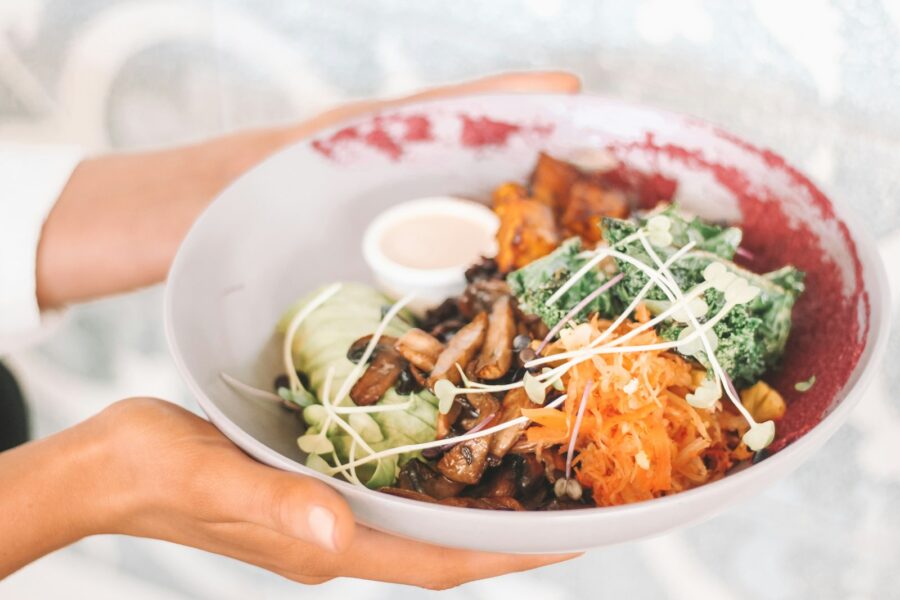In the post-pandemic workplace, where teams are smaller, resources are tighter, and deadlines loom over our heads, there’s never been a higher premium on productivity. For years, organisations have focused on helping employees with skill training or task management to help maximise their efficiency during working hours. However as the world has changed, so have the needs of employees. In particular, an overlooked element can significantly improve employee performance: nutrition and eating habits.
How is Nutrition related to Employee Performance?
The old saying “you are what you eat” holds more truth than we might realise. Recently, ultra-processed food has been under fire and there have been numerous studies backed by research showing that nutrition plays a key role in cognitive function. Deficiencies in essential nutrients such as vitamins, minerals, and omega-3 fatty acids can negatively impact cognitive function, leading to issues with memory, attention, and decision-making.
Furthermore, it’s important to recognise the significant influence of nutrition on energy levels. The well-known post-lunch dip, characterised by feelings of lethargy and reduced productivity, is mainly driven by consuming unhealthy lunch options.
It may seem easier to ‘just grab lunch’ from local food providers but what you choose to consume at lunchtime could have a direct impact on not only your energy levels but your mindset on how you approach the afternoon workload.
High consumption of supermarket or readymade sandwiches, packets of crisps, sugary foods, fast food, tinned processed soup and microwave meals could derail a whole afternoon.
According to the Harvard Business Review – What you eat affects your productivity – these foods can release glucose quickly, leading to a burst of energy followed by a slump or processed foods with high-fat content (especially found in fast food) may provide sustained energy, but require our digestive system to work harder, reducing oxygen levels in the brain and making us feel sleepy.
Opting instead for a non-restrictive diet, such as those enjoyed in the Mediterranean, offers a protective effect on brain health and is correlated with a decreased rate of cognitive decline.
Despite the name, the Mediterranean diet is not a restrictive food plan but a comprehensive way of eating. It focuses on a balance of carbohydrates, proteins and healthy fats – consuming plenty of fruits and vegetables, legumes like chickpeas and lentils, whole grains, nuts and seeds, and healthy fats like olive oil, and fish.
Choosing nourishing healthier food enables employees to maintain peak performance levels throughout the entire workday.
A great example of a Mediterranean lunch is choosing a salad with a selection of fresh vegetables, cheese, and legumes with a drizzle of extra virgin olive oil and fresh herbs which will provide sustained energy while preventing energy crashes that can affect work performance.
Or a homemade minestrone – a hearty vegetable soup made with tomatoes, beans, carrots, celery, onions, and pasta or rice. This nutritious soup is packed with vitamins, minerals, and fibre, promoting digestive health and providing long-lasting energy without causing a post-lunch slump.
Creating a Nourishing-Rich Workplace Culture
Beyond the nutritional intake of employee lunches, making changes to the psychology of eating at work can also reap benefits. By prioritising employee nutrition and helping them make healthier choices, workplace leaders can create an environment that supports peak performance and long-term success amongst their teams.
This includes encouraging a no-eating-at-your-desk policy. A study in 2016 by Korpela, Kinnunen, Geurts, de Bloom and Sianoja confirms that encouraging employees to take a break from work at lunchtime increases energy levels and decreases exhaustion. Motivating healthier eating habits will only lead to improved long-term energy levels
Also eating together boosts morale within organisations. So initiatives such as ‘bring your lunch into work day’, where employees enjoy together a social work lunch away from their desks, encourage employees to disconnect from work and relax, which has been proven to improve digestion and metabolic rate.
Organisations can also provide healthier snack options. For example, stocking the office kitchen with a variety of fresh fruits which is an important element of the Mediterranean diet. Fruits are naturally sweet, rich in vitamins, minerals, and antioxidants, and provide a quick energy boost without the crash associated with sugary snacks.
Empowering Employees Through Nutrition and Cooking Education
Investing in employees’ cooking skills can generate significant returns, both in terms of workplace performance and overall satisfaction.
Nutritional workshops and wellness cooking classes, whether conducted onsite or online, offer organisations a powerful tool for promoting healthy nutrition and eating habits among employees. By providing valuable education on topics such as balanced meals, and cooking skills, these initiatives empower employees to make better food choices and adopt healthier habits both at work and at home. They can also help foster behaviour change, leading to improved health outcomes such as increased energy levels, and enhanced productivity. Additionally, these initiatives contribute to a positive workplace culture focused on health and wellness, creating a healthier happy workforce.
By providing employees with the tools and knowledge they need to make informed choices, we empower them to take ownership of their health and well-being.
In conclusion, the link between nutrition, cooking knowledge, and workplace performance is unquestionable. By understanding the importance of these elements and taking proactive steps to prioritise employee well-being, leaders can create a work environment where individuals thrive both personally and professionally.
Paola Maggiulli
Paola, aka, The Tiny Italian is on a mission to revolutionise self-care through cooking. While escaping a toxic working relationship and recovering from burnout, Paola discovered a happier, healthier, balanced life through the power of cooking. She now transforms lives by teaching simple sustainable cooking habits that seamlessly integrate into busy lifestyles, enabling people to eat healthier, embrace the Mediterranean diet and enjoy a dolce-vita lifestyle, improving their connection with food, self-care and well-being so that they can thrive.



